SITREP: It's All Too Surreal
The Surrealism movement was sparked from a revolutionary idea in Paris around 1924. And has been used by artists as a serious weapon in the struggle for political, social, and personal freedom.
I’ve felt very off-kilter this week. Tariffs, allergies, a random snowstorm—it’s been a strange few days. As I’m writing this, it’s currently late Monday night, it’s a full moon, and everything has been batshit crazy at work and home. I’m ever more grateful for the moments of stillness I find in reading and writing. I’m finding it hard to sit in front of a camera to film for booktube, but I’m scribbling like a madwoman in my journal. Is anyone else feeling the urge to pull inward and be more introspective right now?
Recently Watched:
This week, I watched the surrealist psychological horror film Santa Sangre (1989), directed by Alejandro Jodorowsky. This movie is so bizarre and addictive. The vibrant colors and the music are infectious, but I kept asking myself, “What the heck am I watching?” (Not that I could stop!). If you’re looking for a movie all about mommy issues, look no further.
Santa Sangre follows the life of a young boy named Fenix, who grows up in a circus family. His father is a lecherous circus owner, and his mother leads a bizarre religious cult that worships a young girl with no arms. One day, Fenix witnesses a horrible showdown between his father, Orgo, and his mother, Concha. Fenix watches his father mutilate his mother, which sends him into an asylum. Eventually, he grows up and escapes. He returns to show business to become his armless mother’s “arms” in a bizarre symbiotic relationship. He performs various tasks for her while struggling with his psychological demons and past trauma (spoiler: he kills a lot of people).
The film is funny, touching, grotesque, and shocking—it runs the gamut of emotions. It felt like crawling into a surrealist painting and losing track of how to get back out. I particularly loved the relationship between Fenix and the young deaf and mute girl, Alma. I love how they communicate and the love they have for each other. Alma might be my favorite character in the film.
I think Ciara Moloney at The Sundae puts it best in their review:
Santa Sangre won’t be for everyone. It’s pretty out there. But if you want to try it, I’d love to hear your thoughts on this wacky film in the comments.
We’re halfway through The Custom of the Country read-along. I hope you’re enjoying all of Wharton’s not-so-subtle commentary on American capitalism and culture. I am working on the next discussion post and hope to have it out by early next week. Be sure to follow along with My Year with Edith Wharton here so you don’t miss a post.
I’m a BookShop.org affiliate! Full disclosure: I will receive a small commission if you order books using my links.
Currently Reading:
I’m still keeping a tight rein on my current reads. If I don’t, I will have five or six going at once.
Parable of the Talents (85%): And I thought Parable of the Sower was prophetic! Parable of the Talents hits a little too close to home. As much as I love this duology, I’m also finding it really hard to read, given current events. Am I reading fiction or the newspaper?
Extracting the Stone of Madness (35%), I’m still making my way through this collection. I’m enjoying some of the poems but not all of them. Some feel a bit flat, and that could be the translation, or it could be the poems in question. I also find it hard to breeze through poetry collections. I want to sit and let the words simmer in my brain. I have this on my e-reader; when I have a moment, I read a few poems instead of doom-scrolling on TikTok.
I’m still loving my quarterly chunky read. Mason & Dixon (20%) is so much fun. But I have to read it in chunks like I did with Gravity’s Rainbow, or it all gets to be a bit too much. I will admit that the songs don’t bother me as much in this one, and he’s introduced sentient clocks into the story. (Who doesn’t like sentient clocks?) You never know what this man is going to do next!
Recently Read:
Daddy’s Gone A-Hunting by Penelope Mortimer:
“The first stage of the nightmare is losing the ability to believe in insignificance. Consciousness is sharpened to a point in which nothing is trivial but every moment, every detail, has the same unbearable quality of dread. In this condition of despair there are no crises. The merciful censor of memory has broken down and everything is recalled with equal horror, the broken nail becomes a jagged pointer to the senselessness of living, the most commonplace remark releases, without warning, the grief or terror of a lifetime. But still the days pile up, one on top of the other, in an orderly fashion; the weeks are marked by a red Sunday and the months have names. It is necessary to eat and sleep. It is necessary to prepare for the future, even if this is only done by drawing in breaths so that it may, in a moment, be exhaled and breathed again. The moral judgment delivered on this state of unhappiness is as severe as that pronounced on the lunatics of Bedlam. Lost, it says with smug disgust, all sense of proportion. Which is exactly true.”
This is the fourth book I’ve read from my recent NYC haul, and I’m happy to say it’s another successful read. Daddy’s Gone A-Hunting follows Ruth Whiting, a middle-class housewife in 1950s England. She’s a wife and mother, and it’s rapidly suffocating her. We follow Ruth's psychological deterioration as she confronts her unfulfilling marriage, her daughter's pregnancy, and her own sense of purposelessness. We switch from plotty, dialogue-heavy scenes to more introspective internal monologues about the crushing mundanity of trying to meet the expectations of 1950s society. I was shocked by the psychological depth of the narrative. I wasn’t expecting it at the start.
But this isn’t simply a story about a housewife struggling in a loveless marriage. It’s also about mothers and daughters and not wanting your daughter to repeat the mistakes you’ve made. Ruth is so miserable in her marriage. Yes, she loves her children, but she’s trapped with a horrible cheating husband trying to keep up appearances. She was forced to marry Rex when she got pregnant. The last thing Ruth wants is for her daughter, Angela, to be trapped in a horrible marriage, too. Together, mother and daughter embark on a journey to find someone who will perform an illegal abortion before it’s too late. This journey and their struggles to find someone to help them highlights the lack of agency women had over their own bodies.
But it’s not just the body that was controlled but also the mind. We’re told Ruth is having a nervous breakdown. A live-in nurse is brought in who attempts to take care of her. But I’m not sure that Ruth is as mentally unstable as we’re meant to believe. Ruth is depressed and anxious because of societal expectations, her lack of agency, and being trapped in a loveless marriage. She’s not having a nervous breakdown, but she is in an existential crisis. She can no longer live a life devoid of personal fulfillment, and it’s starting to break her. It’s not her brain that’s broken. It’s how society at this time treated women.
I absolutely loved this book and am excited I found another mid-century winner!
Down Below by Leonora Carrington:
“How could I write this when I don't even dare think about it? I am terribly anguished, yet I cannot continue living alone with such a memory...I know that once this has been written down, I shall be delivered. You must know, otherwise I shall be persecuted to the end of my living days. But shall I be able to express with mere words the horror of that day?”
I read The Hearing Trumpet about a year ago and fell in love with Leonora Carrington. Since then, I’ve watched a few documentaries (some I’ve shared in previous SITREPs) and even saw one of her paintings in person. She led a fascinating but also tragic life. During WWII, Leonora had to flee France for Spain after her lover Max Ernst was arrested by the Nazis. This leads to a nervous breakdown. When she arrived in Spain, she was institutionalized, where she underwent horrific medical treatments to “cure” her. Down Below is Carrington’s attempt to capture this traumatic period of her life on paper.
The story is strange, moving, and disorienting. We’re inside the mind of a “mad woman.” The narrative is convoluted and filled with strange symbolism. It feels like you’ve crawled into one of her paintings. She slowly draws you in, throws you off-kilter, and then brings you back to reality. Carrington transforms personal trauma into universal truth. It’s a truly unique look at mental illness.
Don’t let the length of this memoir fool you; it is challenging both stylistically and in subject matter. I highly recommend reading the introduction, especially if you’re unfamiliar with Carrington’s life. The introduction gives the reader all the context they need to dive into the murky waters of Down Below.
Death Takes Me by Cristina Rivera Garza (Translated by Robin Myers and Sarah Booker):
“Yes, I write. Also. Also for pleasure, like running. To get somewhere. Utilitarianly. To get to the end of the page, I mean. Not for exercise. If you know what I mean: it’s life or death.”
Can I be honest? I have no idea how to talk about this book. Garza plays with the crime novel in such a transformative way that she’s created something else entirely. The fractured narrative is beautiful but also challenging. I keep describing this as a dizzying novel. Some passages felt deliberately opaque, and I never felt comfortable in the story. The pacing was choppy, but I couldn’t stop reading. I needed to know who the murderer was and why they were castrating all these men. I’m still thinking about this strange novel and trying to figure out what the heck I just read.
Garza weaves various perspectives and temporal spaces to create a meditation on death. She spoke in an NPR interview about how we often look at murder victims in the context of femininity. We expect the serial murder of women, but what if the victims were all men? How does that change how we think about the victims, the murderer, and its effects on society? At its core, that’s what Death Takes Me is exploring, but I will need a few re-reads before I feel comfortable saying I understand this novel.
For me, this is the kind of book that needs to be discussed to be understood. If you’ve read Death Takes Me, I need to know your thoughts in the comments.
Publisher Mail:
Thank you to the publishers who sent these to me. It’s an honor to receive books for spotlight and review.
Defund: Black Lives, Policing, and Safety for All by Sandy Hudson (Out now from Pantheon):
Defund examines why defunding the police is the only way to increase public safety for all. “Longtime activist Sandy Hudson examines the origins of commonly held ideas about police and safety to show how police-related social policies are based more on a sensationalized idea of safety than on outcomes and data. She demonstrates the destructive effects of policing on scores of people, arguing that investment in community resources and infrastructure rather than law enforcement is the key to making us safer.” This system we have isn’t working. There has to be a better way. Hudson attempts to show us an alternate path to keep everyone safe. I look forward to reading this soon (and I hope I can buddy-read it with
).Blue Ruin by Hari Kunzru (Out in paperback May 14, 2025, from Vintage):
I’ve had my eye on this book for a bit now, and I was pumped when Vintage offered me a paperback copy. Blue Rain is “a profound and enthralling novel about beauty and power, capital, art and those who devote their lives to creating it.” A young, struggling artist is trying to make a name for himself during the pandemic. He’s undocumented, living out of his car and eking out a living delivering groceries in an affluent part of upstate New York. One day, he delivers groceries to a house surrounded by woods, where he runs into his ex. She invites him to isolate with her and the erratic gallery owner who owns the property. He now has to confront the life he left behind. It sounds like such a me-read!
Something to Watch:
People keep saying that taste is dead—the internet and influencers ruined it. You even hear it in the book space. “Everyone on Booktok reads the same books!” And they do, to a point. I like
discussion on this. Yes, I’ve read nearly every book in this thumbnail. But there’s a reason they’re popular: they’re pretty darn good books!There’s nothing new about books getting swept up in the popular zeitgeist. This predates the internet! But there is a point to be made about only reading the popular books. There are so many amazing stories waiting to be read. You don’t need to read the books all the popular creators are talking about!
I wish more bookish content creators would break the mold, read backlist books, and dare to be different. Some creators are doing this (August is Reading comes immediately to mind), but for the most part, the algorithms don’t push these creators like they do your average mainstream ones. This all makes me wonder, how can we hijack the algorithm to bring taste back into the equation?
I will be traveling later this week, so there will be no SITREP next week. Expect an extra juicy edition to round out April. If you have any fun movie recommendations, please drop them in the comments.
I hope you’re all doing well and reading something wonderful.
SITREP is a free weekly newsletter about books and things. If you want to support my work, consider becoming a free or paid subscriber. You can also like and share this post with your friends.
Thank you for reading. See you next week!





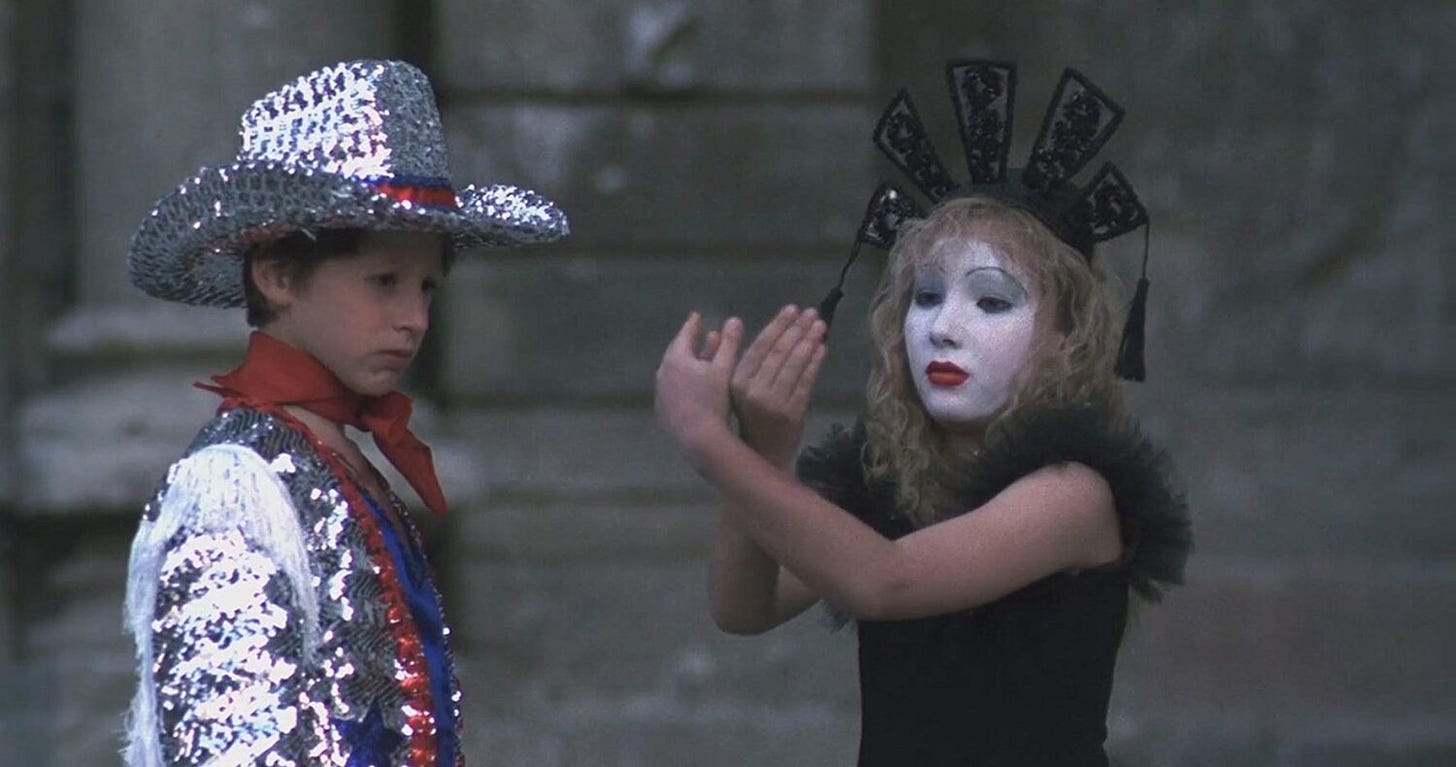
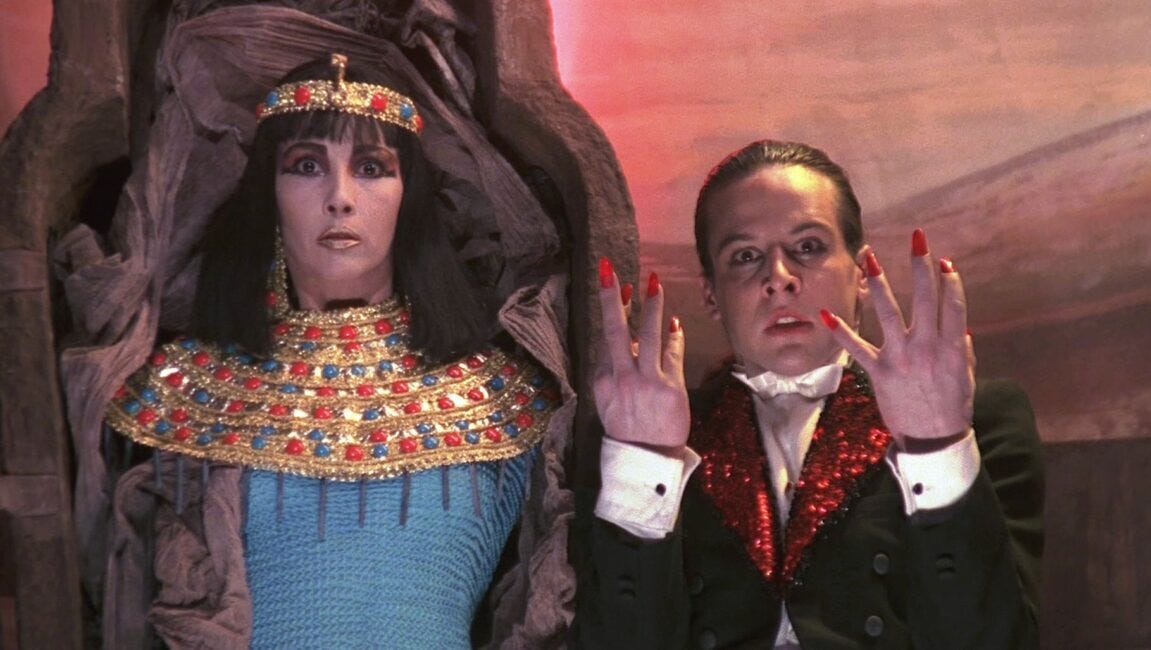


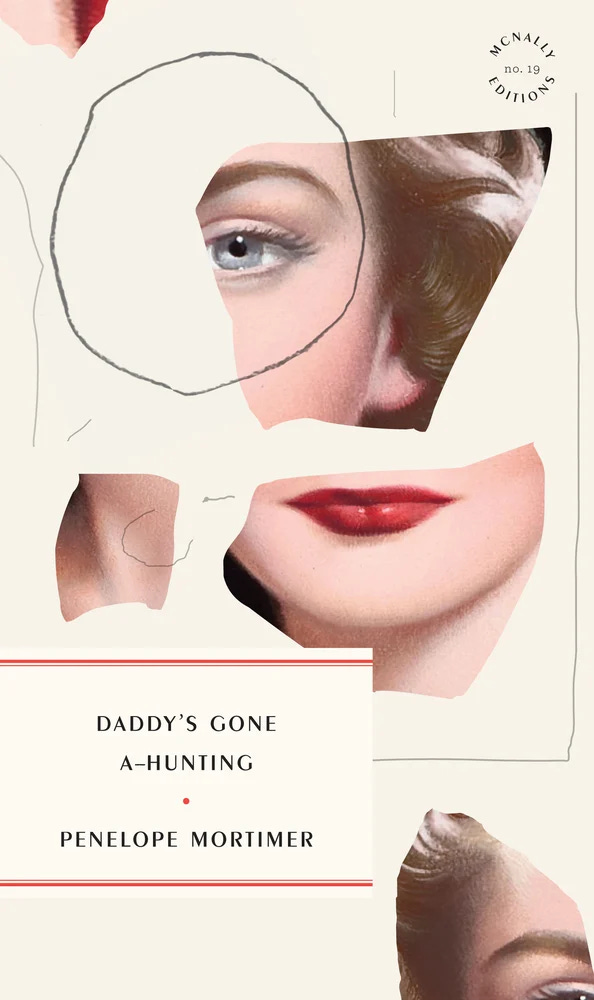
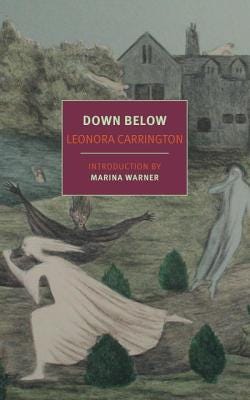


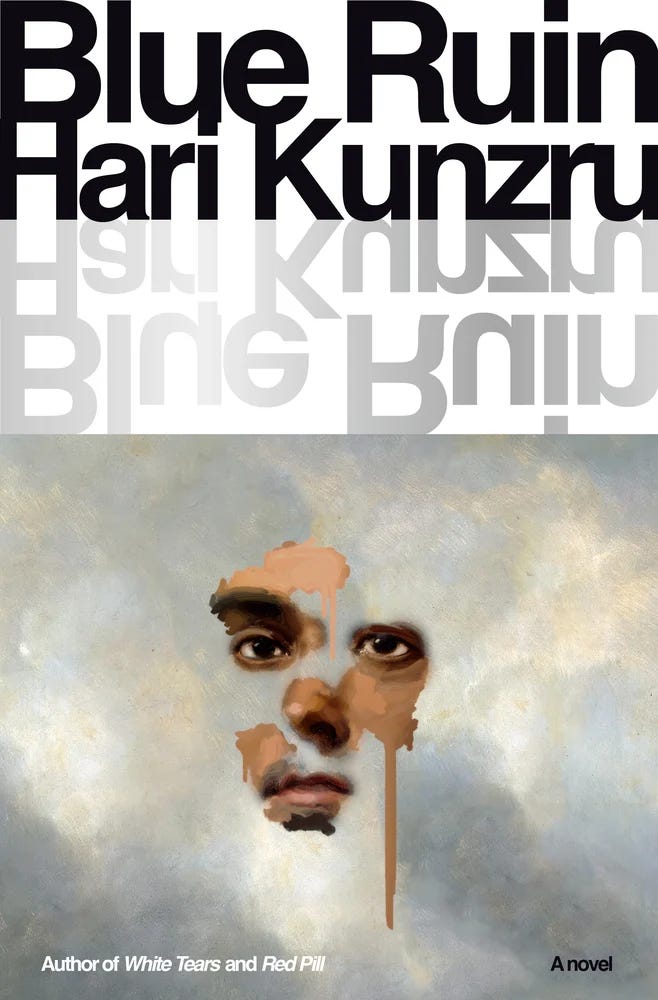

I've started reading "Death Takes Me" and for now I'm reading it as a standard crime novel where the goal is to figure out whodunnit. The story is complex, however, and I'll see how long that crime novel framework will hold up. My sense is, not for long.
Thinking of your opening comments in this SITREP, I was reminded of that old saying, “April is the cruelest month,” which I’ve learned is the opening line of T.S. Eliot’s “The Wasteland”. The full moon caught my attention, too, this past early Tuesday morning, when I momentarily mistook its brightness for the sun, lighting my path on the way to the bathroom to water the mules. As for the “batshit crazy” pace of your life at present, I would enjoy it while you can. Believe it or not, these are the good old days you’ll look back at with some degree of longing when you’re my age.
I’ve been reading “The Magic Mountain”, which you’ve discussed in an earlier SITREP, and have reached the section called “Excursus on the Sense of Time” in Chapter 4, in which Thomas Mann describes how our perception of the passage of time depends upon how varied and full our days are. “When one day is like every other,”—one of the risks of retirement—“then all days are like one, and perfect homogeneity would make the longest life seem very short, as if it had flown by in a twinkling.” The solution, then, is to avoid settling into dull routines by adding variety to our life. “We know full well that the insertion of new habits or the changing of old ones is the only way to preserve life, to renew our sense of time, to rejuvenate, intensify, and retard our experience of time—and thereby renew our sense of life itself”, even though it may render us “batshit crazy” occasionally.